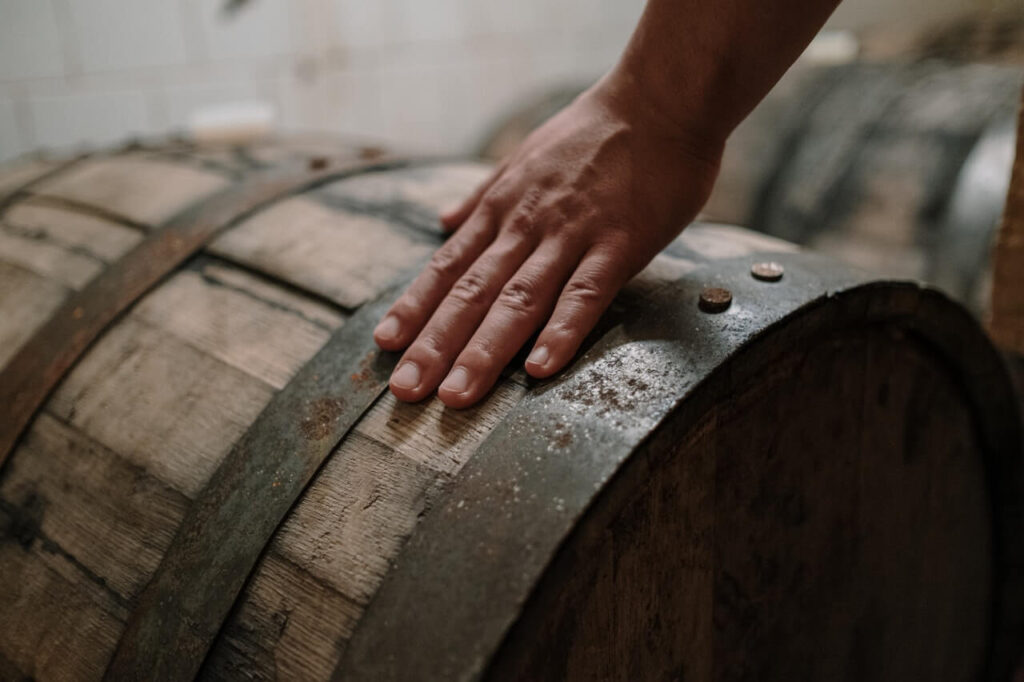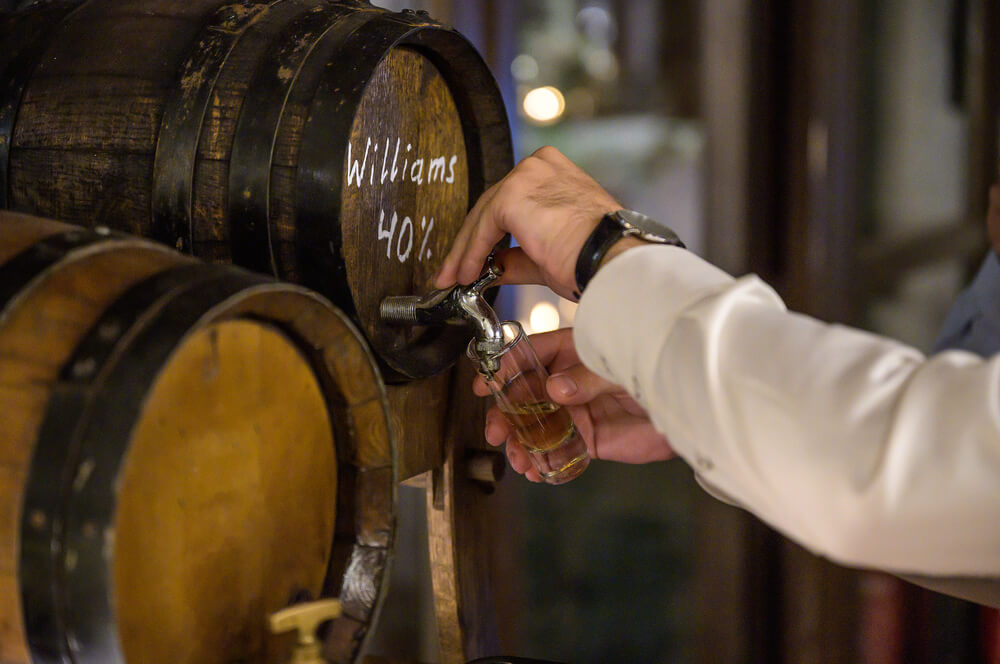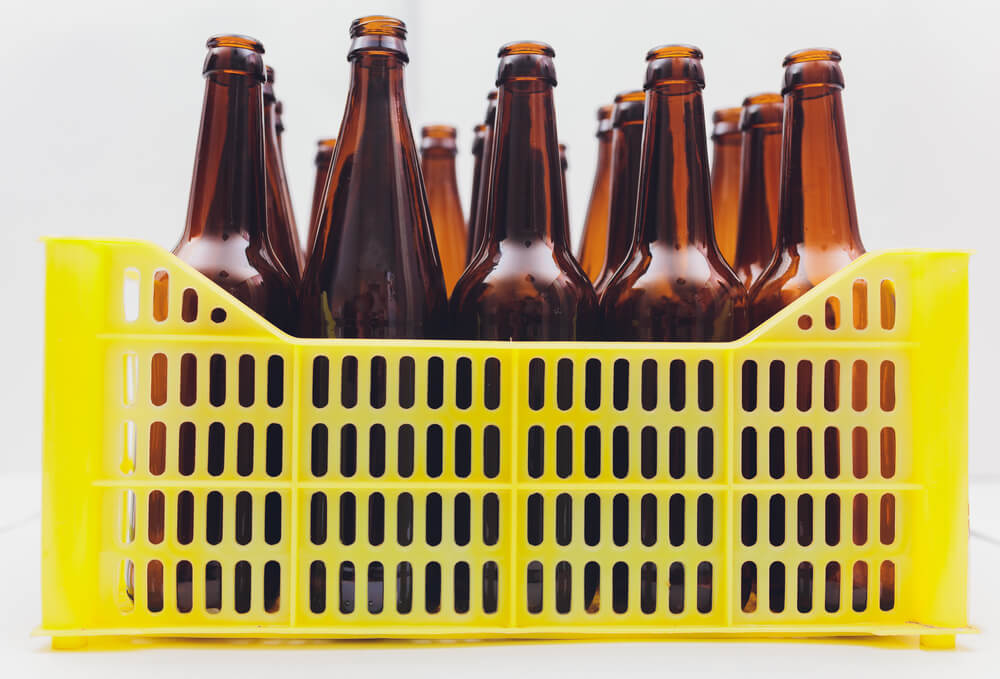Oak barrels have long been used for aging wine and spirits but, can you put beer in an oak barrel? Here’s what you need to know about barrel-aging beer.
Barrel-aged beers have kind of become the rage with craft brewers over the past few years. Like IPAs and sours before them, right now, you’d be hard-pressed to find a local craft brewery that doesn’t have a barrel-aged beer on their tap list.
Most craft brewers are sourcing used oak barrels for their aging process. Oak barrels have been the standard used in wine and spirit making for hundreds of years. So, it makes sense that if you’re going to age a beer, it will best be done in an oak barrel.
While we’ve not yet tried aging a beer in a barrel, it’s been on our mind, and we’ve been researching how to be successful in this next brewing adventure. If you are considering using an oak barrel to age one of your homebrews, here are some of the things we’ve learned during our research.
Table of Contents
Why Use an Oak Barrel?
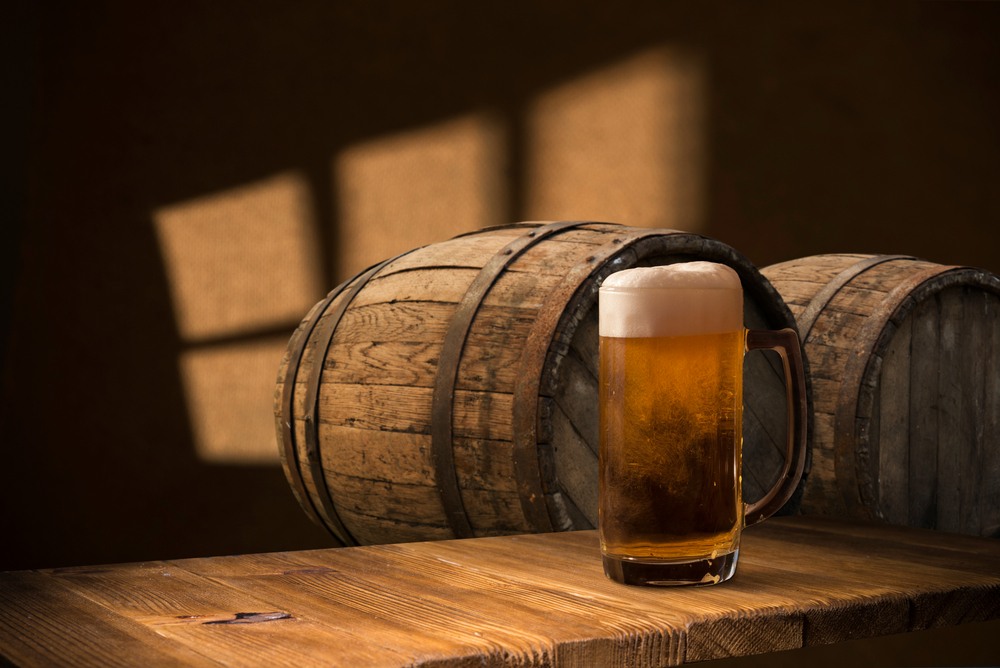
If you’re going to be barrel-aging a beer, you’ll use an oak barrel because they make all barrels from oak. Oak is a very robust type of wood. It is sturdy and doesn’t suffer from much shrinkage. Whether you are barrel-aging whiskey, beer, or wine, oak barrels tend to have minimal leaks.
Oak is also a porous wood, so it tends to soak up a bit of the liquid in the barrel. So, if you are aging your beer in a barrel that previously aged a wine or spirit, you can expect that some of those flavors will end up in your beer.
What Kinds of Beers Can Go in Oak Barrels?
The short answer is that any kind of beer can go in an oak barrel for aging. The more relevant question should be, “Does barrel-aging benefit every type of beer?”
The answer to that question is no. Some beers just don’t get better with time, or in an oak barrel.
The general rule of thumb for barrel-aging beers in oak barrels is; higher ABV beers or a beer style with a robust flavor to start with are best for aging. These beers will develop added flavors from the barrel without overpowering the base beer flavor.
When you’re thinking about barrel aging a beer, go with dark, high alcohol beers like Belgian Dupples, imperial stouts, strong ales, and some higher ABV porters.
What Size Barrel Should I Use?
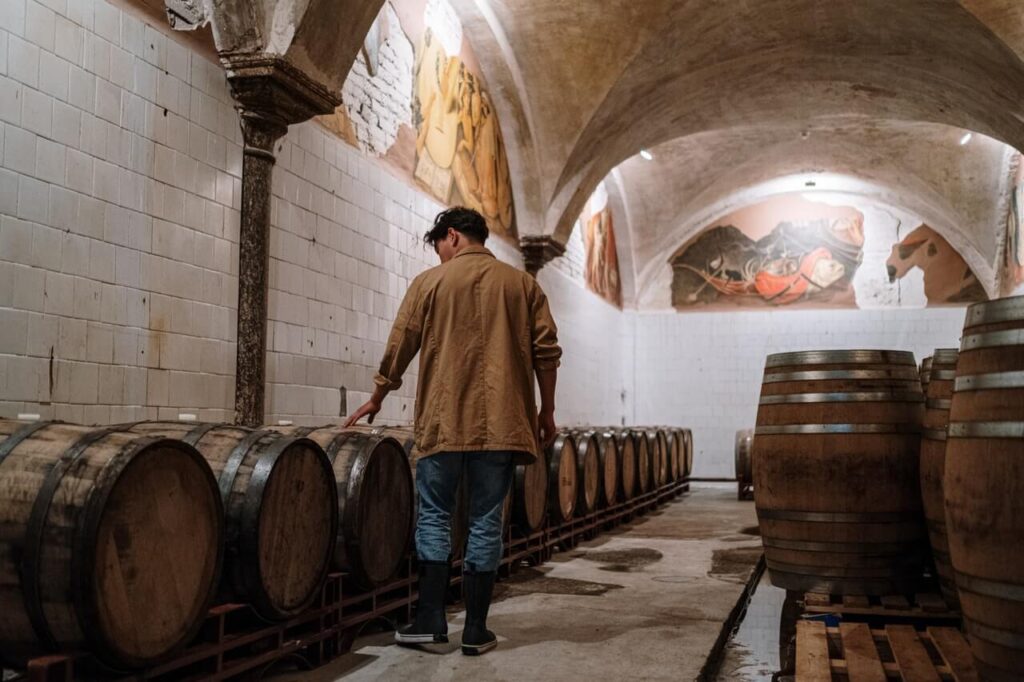
Oak barrels come in a wide range of sizes. You can find some as small as 1-liter, and the largest brewers use tend to be around 63-gallons. However, most homebrewers invest in barrels that range in volume between 5 and 30 gallons.
Smaller barrels are great for experimenting with the barrel aging process. As you gain experience and want to perfect your barrel-aging technique, you’ll move to larger barrels that allow you to make larger quantities of beer and experiment with barrels from different sources.
Wine vs. Spirit Barrels
When you’re looking at buying an oak barrel for aging beer, you’ll find that most used barrels will have previously aged either wine, port, sherry, or a spirit like whiskey, bourbon, or rum.
Before you run out and buy a barrel, you need to know what flavors you’re hoping to impart to your aged beer. Here is a basic list of flavors you can expect from previously used barrels:
- Wine or Port – Cherries, earthy oak notes, chocolate
- Sherry – Earthy oak and grapes
- Bourbon or Whiskey – Vanilla, florals, caramel, smokey oak notes
- Rum – Dark chocolate, coconut
Where to Find Oak Barrels
With the growing popularity of barrel-aged beers, it can be a bit challenging to source an oak barrel for your homebrew. Our recommendation for getting a hold of a good, used barrel is to reach out to a local craft distillery or winery. They will have old barrels that you can usually get for a reasonable price.
If that doesn’t work, your local homebrew may have a relationship with local distilleries or wineries to take old barrels. The last resort may be to reach out to a larger, commercial brewery and see if they can add a barrel to their regular orders for you. If this works for you, you may get a used barrel for a lower price than through other sources.

